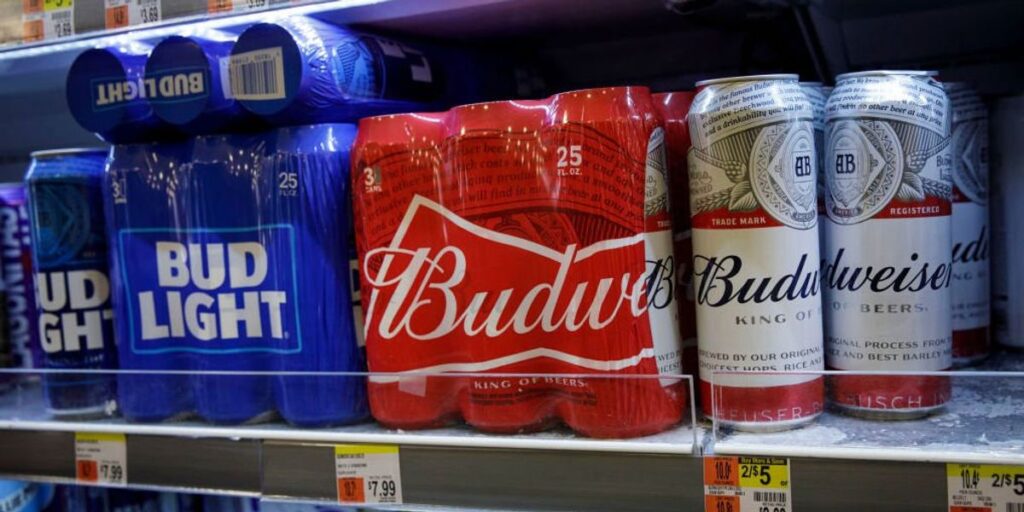A second Anheuser-Busch executive is on administrative leave in the wake of controversy over Bud Light’s collaboration with transgender activist Dylan Mulvaney.
As TheBlaze reported on Friday, Bud Light vice president of marketing Alissa Heinerscheid has taken a leave of absence and is being replaced by Todd Allen, Budweiser’s global vice president of marketing.
Now, Daniel Blake — the executive who oversees marking for Anheuser-Busch’s mainstream brands and who serves as Heinerscheid’s boss — is also taking a leave of absence from the company. According to the Wall Street Journal, the decision to step away was not voluntary.
“Given the circumstances, Alissa has decided to take a leave of absence which we support,” an Anheuser-Busch spokeswoman told WSJ. “Daniel has also decided to take a leave of absence.”
The company did not immediately announce who would replace Blake. The company also did not say when either marketing executive would return to the job — if they return at all.
In a statement on Friday, Anheuser-Busch explained changes are being made within the company to ensure marketers are “more closely connected” to Anheuser-Busch’s “brand activities.”
The statement said:
We have made some adjustments to streamline the structure of our marketing function to reduce layers so that our most senior marketers are more closely connected to every aspect of our brands’ activities. These steps will help us maintain focus on the things we do best: brewing great beer for all consumers, while always making a positive impact in our communities and on our country.
The disclosure is perhaps a nod to Heinerscheid’s apparently out-of-touch views of what Bud Light’s brand is and what it should be about.
Just before Mulvaney announced the Bud Light partnership, Heinerscheid appeared in an interview where she said her goal was to transform Bud Light’s “fratty” image into something more “inclusive.”
“I had a really clear job to do when I took over Bud Light, and it was ‘This brand is in decline, it’s been in a decline for a really long time, and if we do not attract young drinkers to come and drink this brand there will be no future for Bud Light,'” she said.
Heinerscheid explained she believed her job meant incorporating “inclusivity” and “shifting the tone” of the brand from its “fratty, kind of out-of-touch humor” to something that is “truly inclusive, and feels lighter and brighter and different, and appeals to women and to men.”
Like Blaze News? Bypass the censors, sign up for our newsletters, and get stories like this direct to your inbox. Sign up here!


